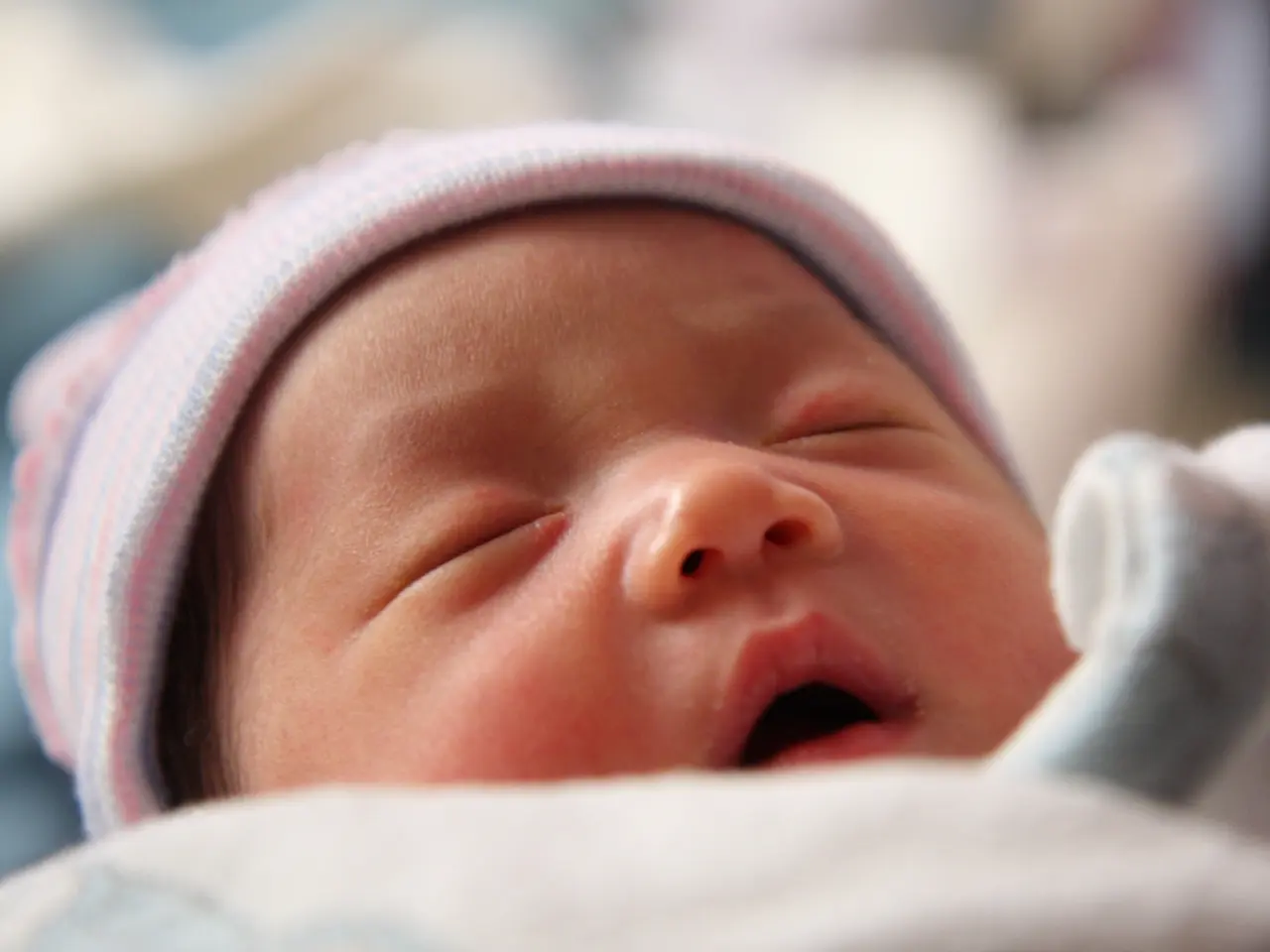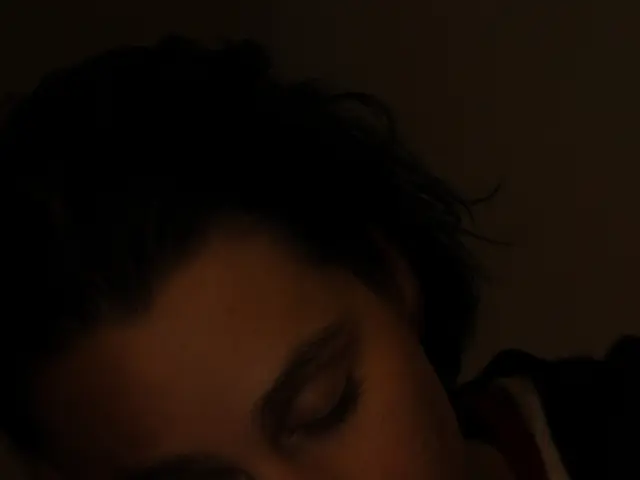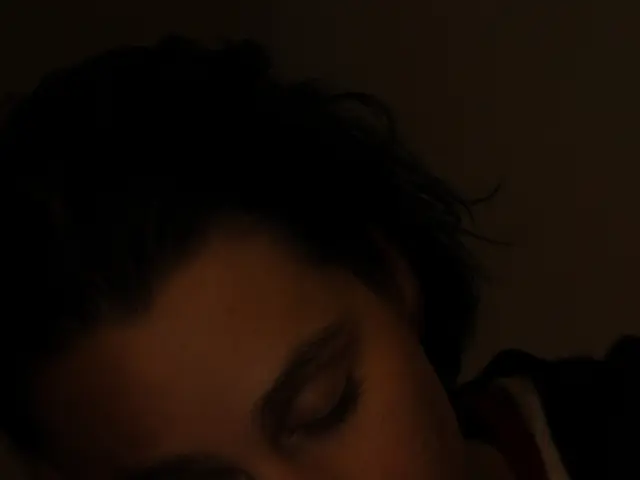Non-Seven Sleepers: Battling Restlessness with ADHD
Struggling with sleep issues due to ADHD: Exploring potential treatments.
Denver (dpa/tmn) - Struggling to catch some z's? You're not alone, especially if you have Attention Deficit Hyperactivity Disorder (ADHD). Restless minds and bodies make sleep a literal uphill battle for many ADHD folks. US psychiatrist William Dodson explains on the specialist portal Additude that this sleeplessness can, in turn, worsen other ADHD symptoms. But what's causing these restless nights? And how can we improve the quality of our rest?
Nightcrawlers with Hyperactive Brains
The brain of an individual with ADHD tends to show overdrive, even when it's supposed to wind down. Around three-quarters of all adults with ADHD report having trouble "switching off their thoughts to fall asleep at night," reveals Dodson, who's spent the last 25 years helping adults with ADHD.
Once they do fall asleep, their slumber is often disrupted, and they wake feeling exhausted rather than refreshed. Many experience unusually deep sleep in the wee hours, with extreme resistance to waking up. "They fall into a 'deep sleep' from which they can only be awakened with great difficulty," Dodson suggests.
Why? There is some debate; the simplest theory is that sleep disorders are a direct manifestation of ADHD itself. Another theory: People with ADHD have a unique sense of time, with only the present (now) and the immediate future (not now) existing. This discrepancy in internal clocks could contribute to sleep problems, and the results can, in turn, exacerbate ADHD symptoms.
Sleep Tips for the Restless
The most effective strategy, according to Dodson, is improving what is known as sleep hygiene — the conditions that promote a healthy, restful night. Start by following general guidelines such as:
- Restrict bed use for sleep and intimacy, not for worry or arguments.
- Establish and maintain a regular sleep schedule.
- Minimize daytime naps.
In addition to these fundamental principles, there are a couple of aspects specific to ADHD that need attention:
- Go to bed to sleep — even if it's hard. Many with ADHD feel most energetic in the evening, think most clearly, and feel most stable during that time. This often conflicts with work or family commitments, making it even harder to meet them when sleep-deprived.
- Limit caffeine intake after midday. Caffeine excites the already active ADHD brain and disrupts sleep by causing nights of frequent bathroom visits.
Exercise and spending time outdoors before bed can also improve sleep quality.
But wait, there's more! For those really struggling, other tactics might be needed. Psychotherapy, cognitive-behavioral therapy (CBT) for insomnia, or medication may become necessary to tackle persistent sleep issues linked to ADHD or coexisting sleep disorders.
| Strategy | Description | ADHD-Specific Considerations ||---------------------------------|-------------------------------------------------------------|---------------------------------------------------------------|| Consistent Bedtime Routine | Following a daily fixed sleep and wake cycle | Aids time management impairments; counters irregular routines || Screen Time Reduction | Limit exposure to screens 1 hour before bed | Reduces blue light disruption to circadian rhythm || Bed Only for Sleep | Use bed for sleep and intimacy only, not other activities | Strengthens sleep association || Avoid Caffeine and Daytime Naps | Eliminate stimulants after lunch | Prevents nighttime sleep disruption || Physical Exercise | Engage in daily moderate exercise | Alleviates hyperactivity and improves sleep quality and regulation || Sensory Environment Modification | Calm the bedroom atmosphere (lighting, noise, scents) | Addresses sensory sensitivities affecting sleep || Behavioral Interventions | Managing sleep procrastination and implementing routines | Targets ADHD-related impulsivity and reward-seeking at night || Psychotherapy and Medication | Professional treatment if needed | For underlying or coexisting sleep disorders |
Because sleep is essential for managing and improving ADHD symptoms, prioritizing its quality is vital. Consult your healthcare provider for personalized recommendations to optimize your rest.
- Improving sleep quality, which is crucial for managing ADHD symptoms, can be achieved by focusing on sleep hygiene, such as establishing a consistent bedtime routine, reducing screen time before bed, using the bed only for sleep and intimacy, and avoiding caffeine and daytime naps.
- In addition to general sleep tips, individuals with ADHD may benefit from ADHD-specific strategies, like limiting caffeine intake after midday, engaging in physical exercise, and modifying the sensory environment in the bedroom to promote relaxation. For those struggling significantly, professional treatment like psychotherapy, cognitive-behavioral therapy for insomnia, or medication may be necessary to address underlying or coexisting sleep disorders.








